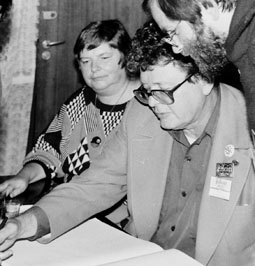A Quote by Steve Inskeep
[Identity liberalism] is about recognition and self-definition. It's narcissistic. It's isolating. It looks within. And it also makes two contradictory claims on people.
Quote Topics
Related Quotes
I don't want it to end, and so, as every therapist knows, the ego does not want an end to its “problems” because they are part of its identity. If no one will listen to my sad story, I can tell it to myself in my head, over and over, and feel sorry for myself, and so have an identity as someone who is being treated unfairly by life or other people, fate or God. It gives definition to my self-image, makes me into someone, and that is all that matters to the ego.
Adolescents swing from euphoric self-confidence and a kind of narcissistic strength in which they feel invulnerable and even immortal, to despair, self-emptiness, self-deprecation. At the same time they seem to see an emerging self that is unique and wonderful, they suffer an intense envy which tears narcissism into shreds, and makes other people's qualities hit them like an attack of lasers.
The self divided is precisely where the self is authentically located. . . We all have identity crises because a single identity is a delusion of the monotheistic mind. . . Authenticity is in the illusion, playing it, seeing through it from within as we play it, like an actor who sees through his mask and can only see in this way.
Blackness also has positive dimensions, those that bear the political meanings of African American people, among other blacks, who have struggled for self-determination and freedom for centuries. The absence of such an identity doesn't automatically guarantee that we will be free of the images and ideals that fuel stereotypes about black identity. Changing the name will not alter the reality.
Self-definition and self-determination is about the many varied decisions that we make to compose and journey toward ourselves, about the audacity and strength to proclaim, create, and evolve into who we know ourselves to be. It’s okay if your personal definition is in a constant state of flux as you navigate the world.

































